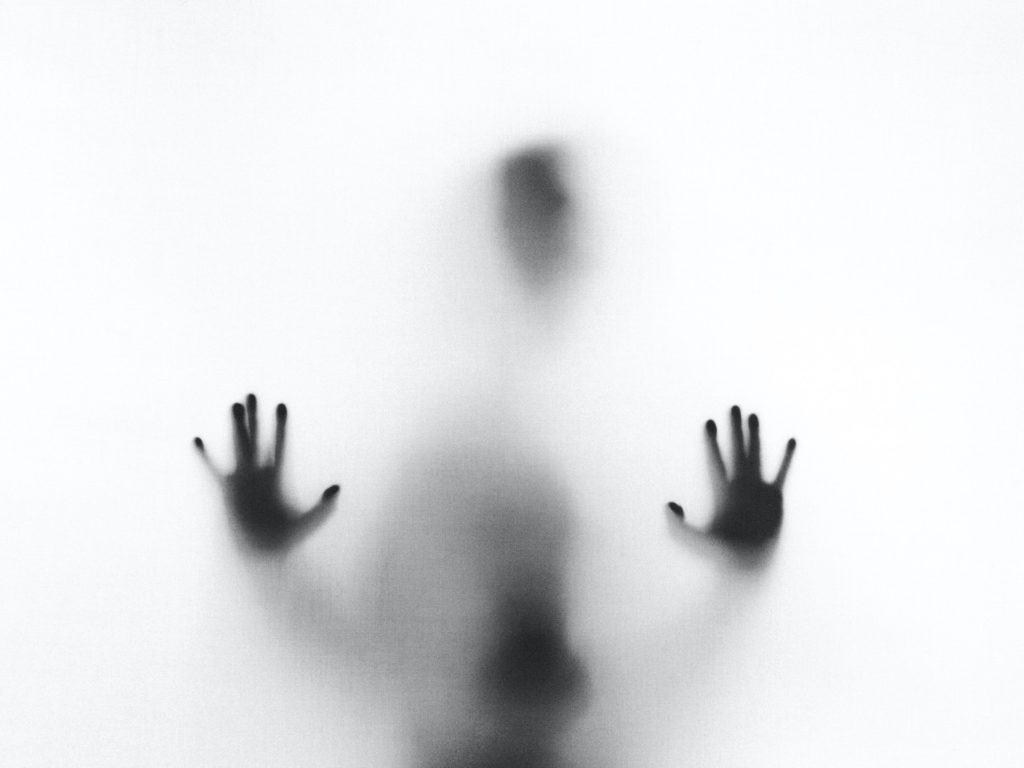Demystifying Psychosis: What It Is and How To Treat It
When Nick Lotz began college, he felt increasingly awkward and out of place. He tried to make friends; and when they stopped returning his texts, he became consumed by anxiety and gripped by paralyzing self-consciousness which he just knew by their glances, everyone could see. So he withdrew, stopped attending classes, drank heavily, snorted Focalin (like Adderall, Focalin is indicated for ADHD), stayed up all night surfing the net, and watching YouTube videos until he became paranoid that others might be tracking his online movements.
He took whatever drugs he could get and attended a concert with a few friends. Wandering backstage, he heard lyrics from a Dave Matthews Band song, “One year of crying and the words creep up inside.”
Suddenly, it all made sense! Nick knew in an instant that he had been the star in a reality-TV show, convinced that everything that had happened to him this year was part of a script. All those people with their whispers and sideways glances, who were tracking his keystrokes online, were crew members in his reality show.
Nick was soon after hospitalized, diagnosed with a Delusional Disorder, and later, as part of his recovery, co-wrote an article for the New Yorker about his paranoid psychosis.
Nick’s story is tragically familiar – a vulnerable 18-year-old leaves home for college, feels painfully self-conscious, becomes depressed, withdraws, reverses night and day, and overuses cannabis and other drugs, hoping to distract and calm himself. For some, like Nick, their sense of reality is altered, they begin to hear voices, and develop delusional explanations for their puzzling and frightening experiences.
Sadly, psychosis is a traumatic experience for sufferers and their families, but it is also stigmatized and shrouded with fear and misconceptions in the general public. So, I thought that some basic information about the nature of psychotic experiences and disorders might be helpful.
What IS Psychosis?
Derived from the Greek words psyche for mind or soul and osis for abnormal or deranged, psychosis is a mental state characterized by a loss of contact with reality.
This loss of contact can be a transient state or morph into an episodic or chronic condition. In some cases of extreme stress, a brief psychotic state may develop rapidly, while in other cases, the onset may be gradual with changes in sleep, hygiene, and social behavior, emerging quietly over time. In mental health fields, psychosis refers to a spectrum of disorders characterized by hallmark symptoms, including:
- hallucinations (hearing voices or seeing, feeling, smelling, and tasting things in the absence of sensory information) and
- delusions, like Nick had, which are fixed beliefs to which an individual clings in the presence of disconfirming information. Additional dimensions may include
- disordered thought processes (disorganized and incoherent speech),
- bizarre behavior, and
- negative symptoms (characterized by significantly diminished volition, motivation, energy, social engagement, and spontaneous speech).
One key aspect of psychosis is impaired insight into one’s symptoms. In the throes of psychotic experience, individuals may not understand that their experiences are not real. Some may deny that they are suffering from a treatable mental condition.
Essentially, insight is what enables us to stand back from our experiences and disentangle real from imagined events. Nick was unable to do this. Instead of viewing his experiences as products of a highly distressed mental state, he constructed a delusional explanation for anxiety-producing experiences he didn’t understand.
Contemporary diagnostic practice views many of these symptoms along a health-illness continuum, ranging from milder variants occurring in individuals not suffering from major mental illnesses, all the way to severe manifestations found in more deeply troubled individuals. International diagnostic systems like the ICD-11 describe a spectrum of psychotic disorders like:
- Schizophrenia,
- Schizoaffective Disorder,
- Brief Psychotic Disorder,
- Delusional Disorder, and
- Substance-induced Psychosis.
When mood disorders like depression and bipolar disorders become more severe, they may also include psychotic symptoms.
Causes of Psychosis
Both nature and nurture play roles in the development of psychosis. Genetic vulnerability is an important factor, as schizophrenia spectrum and bipolar disorders have increased heritability. Likewise, infections, neurological and metabolic disturbances can precipitate psychotic states. But it is a mistake to conclude that biology is destiny because myriad social, relational, and environmental factors can increase the risk, as well as serve as protective factors for vulnerable individuals.
There is increasing evidence that some who suffer severe childhood trauma, including physical, sexual, and emotional abuse and neglect, may be more susceptible to developing psychosis at a later age. Sociological factors such as immigration, isolation, race and ethnicity, urbanization, and poverty may also increase the risk for some individuals.
We’re also learning more about risks associated with drug usage in adolescents and young adults. This does not mean that drugs cause psychosis in all cases. The interaction is more complicated, but it is enough to say that the use of drugs like amphetamines, cocaine, LSD, mushrooms, and cannabis can trigger a psychotic episode in those individuals who may be predisposed due to genetic, traumatic, or other psychosocial factors.
Kids leave for college at an age when many psychotic conditions first occur. Being away from home is both exciting and stressful, and many turn to substance usage as ways to fit in, as well as a means of distracting and self-medicating themselves in the face of increased anxiety and alienation. In any event, heavy, regular use of cannabis, for example, can increase, and in some cases, actually precipitate a first-episode psychosis in a vulnerable young person.
This was unquestionably the case with Nick, and it was a bit surprising to see that his psychosis was not classified as a drug-induced disturbance.
Psychosis Treatment & Recovery
Many lose hope and fail to understand that psychosis is treatable and recovery possible. It all begins with an understanding of psychosis risk factors and early identification of symptoms through consultation with mental health professionals. Sometimes, hospitalization is necessary to stabilize symptoms and set the stage for treatment programs that include different forms of therapy, medication, group support, and recovery networks, and family education.
Individual therapy utilizing cognitive and relational techniques, group therapy, cognitive rehabilitation, vocational, art, and recreational therapies may all be components of an integrated treatment program. Advances in psychopharmacology have led to medicines increasingly effective in treating delusions, hallucinations, disordered thought, and negative symptoms while striving to limit negative side-effects.
Recovery networks and social support systems are key variables that can provide outreach to alienated and isolated individuals to reduce stigmatization and promote healing and adaptation. These approaches to recovery offer alternatives to traditional medical or mental health treatments. Increasingly, individuals and their families have formed networks offering support and techniques to manage and reframe hearing voices.
These organizations seek to de-pathologize voice-hearing and provide individuals with new ways to understand and deal with voices, which occur in people across the population:
The COPE Project at Yale is a resource center created to study and develop treatments for people with altered perceptual experiences. Dmitriy Gutkovich author of Life with Voices provides workshops and coaching for those hearing voices. Other community resources include https://www.hearingvoicesusa.org https://www.intervoiceonline.org.
Summary
Psychosis is a serious condition, which requires an understanding of risk factors, early detection of signs and symptoms, multiple forms of treatment, and recovery networks. Beyond proper diagnosis and treatment, community-based training is important to help family members, school systems, police departments, and other emergency service workers recognize the emergence of psychosis and intervene in compassionate and effective ways.
Disclaimer
Effective diagnosis and traditional forms of treatment can be combined with recovery networks and support groups that help de-pathologize and destigmatize psychosis and replace fear and despair with hope and resiliency. There is no better example than Nick Lotz, who mastered his psychotic despair by eventually co-authoring an article about his darkest experiences to help others.
That’s resilience!
***
Connect with J. Herman Kleiger here: Twitter, Facebook, Instagram, and Goodreads.
Purchase his book The 11th Inkblot here



